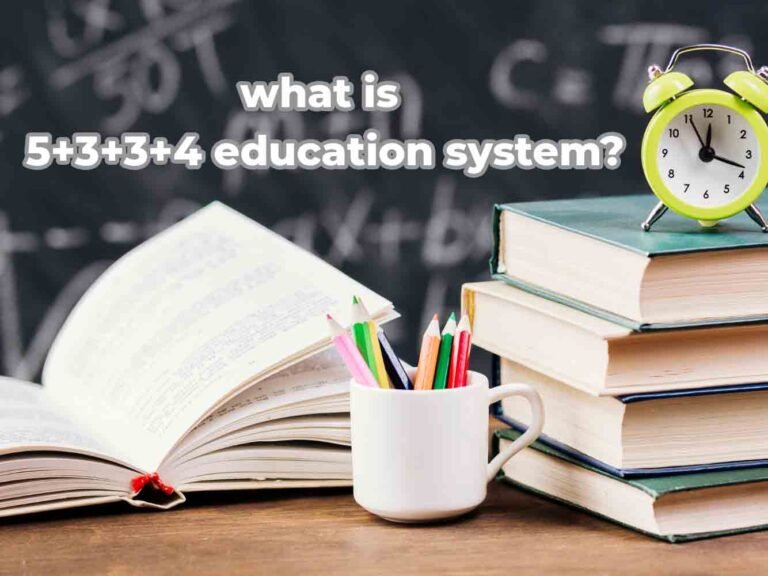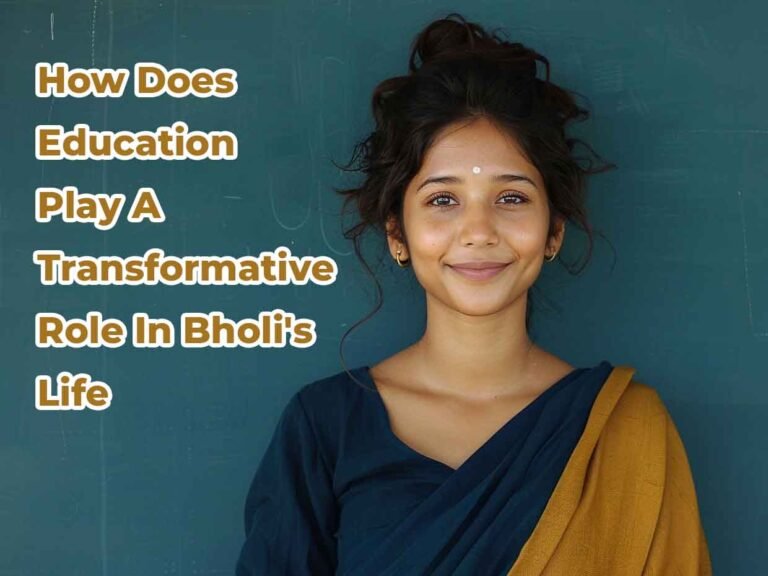Introduction
Individual attitudes, beliefs, and moral frameworks are much shaped by religious instruction. It goes beyond just knowing the ideas of a given faith; it offers a basis for moral judgement, compassion, and a strong feeling of community building. By means of religious education, people acquire the values of empathy, respect, and responsibility—qualities indispensable for both personal growth and social peace.
In a society growing more varied and complicated, religious education also fosters cultural knowledge and tolerance, therefore enabling individuals to value and respect many belief systems. It invites people to investigate important issues about morality, life, and purpose, therefore promoting critical thinking. Furthermore, religious education guides ethical leadership by motivating people to lead with honesty and a feeling of obligation toward others.
In the end, not only can religious education help one grow personally, but it also promotes a more fair and caring society. Promoting understanding and teaching basic values helps people negotiate the obstacles of life with wisdom and empathy, therefore contributing to the greater benefit of mankind.
1. The Function of Religious Education for Individual Growth:
The personal growth of people depends much on religious instruction. It offers a disciplined framework that clarifies for people their place in the world, their goal, and their interaction with a greater force. People learn about characteristics like compassion, humility, and thankfulness—which help them to be generally healthy—through religious lessons. This instruction also promotes introspection, therefore enabling people to investigate their own ideas, feelings, and motives.
They thereby acquire self-awareness and identity, which are absolutely vital for personal development. Furthermore, religious education frequently stresses the need to serve others, thereby developing responsibility and empathy. Religious education enables people to develop solid moral foundations by which they may be guided in making ethical decisions all their lives. In the end, religious education helps one to grow into a healthy, well-rounded person ready to meet the demands of life with resilience and a strong feeling of purpose.
2. How could religious education improve ethical and moral standards?
One effective instrument for strengthening moral and ethical ideals is religious education. It gives them a moral compass so they may tell right from wrong. Many times, religious lessons stress the need for integrity, honesty, kindness, and respect for others. These principles are not only necessary for individual behavior but also for promoting harmonic society interactions. Learning the values of their faith helps people to live according to these standards in everyday life.
This instruction also teaches kids the idea of responsibility, in which case they realize that their acts have effects in this world as well as beyond. Furthermore, religious education sometimes covers difficult moral problems so that people may examine several points of view and make wise conclusions. This approach helps one to create a robust ethical framework applicable in many spheres of life. Basically, by inspiring a strong feeling of responsibility and helping people to behave in line with moral and ethical standards, religious education improves them.
3. Religious Education’s Effects on Social and Community Harmony:
Social and community cohesion, as well as religious education, are much influenced by one another. Teaching the values of love, compassion, and respect for others helps religious education to unite and cooperate among people. It helps people to see past their differences and toward shared objectives, therefore fostering social cohesiveness. Resolving problems also depends much on religious education since it usually promotes understanding and peaceful answers.
People who understand the value of empathy and forgiveness are more inclined to participate in positive communication than to turn to prejudice or violence. By encouraging interfaith understanding, religious education can also assist in closing divisions between many cultural and religious groups. Learning about the ideas and customs of others helps people to value variety more, which is necessary for harmonious cooperation. In the end, religious education has a major influence on social cohesion and community since it provides the basis for a society more inclusive and sympathetic.
4. Religious Education as a Foundation for Understanding World Cultures:
By offering insights into the ideas, beliefs, and values that define civilizations, religious education lays the groundwork for understanding world cultures. Deeply entwined with society, religion shapes all aspects of life, including laws and social practices, as well as art and literature. Studying religious education helps people to better grasp the historical and cultural settings in which many religions evolved. Appreciating the variety of human experiences and promoting international communication depends on this understanding.
By helping people to see the similarities and contrasts across many religious traditions, religious education also fosters respect for others and tolerance. By asking students to analyze how religion has affected and still influences world events and cultural relationships, it also promotes critical thinking. Understanding several cultures is more crucial than ever in a society being more linked by the day. A well-rounded education is absolutely dependent on religious education since it offers the means for people to negotiate this complex terrain with sensitivity and awareness.
5. The Value of Religious Education for Development of Strong Character
One of the main goals of religious education is definitely developing a strong character. By using the lessons of religious doctrines, people are urged to grow in virtues like integrity, honesty, patience, and humility. The foundation of a great character is these qualities, which direct people in their contact with others and in their own lives. Learning about the life of saints, prophets, or other moral leaders—who serve as models for others—is a common component of religious instruction.
This instruction also stresses the need for tenacity and resilience, thereby guiding people to keep strong in the face of adversity. Religious education helps people grow to have strong moral responsibility and self-discipline by teaching these principles. It also motivates people to consider their behavior and pursue ongoing personal development. In a society where moral dilemmas are getting more complicated, a strong character is important for gracefully and ethically negotiating daily problems. Since it offers the basis for developing such a character, religious education is absolutely essential for human growth.
6. building spiritual and personal development:
Developing both personally and spiritually depends on religious instruction. It gives people the chance to investigate and strengthen their faith, therefore developing a closer knowledge of their spiritual views. By means of religious activities, including prayer, meditation, and study, people can interact with a higher power and acquire an understanding of the meaning and goal of life. Oftentimes, this spiritual development results in more fulfillment, contentment, and tranquility.
By pushing people to live consistent with their ideas and ideals, religious education also promotes personal development. It encourages self-examination and the search for virtue, therefore enabling people to grow from personal shortcomings and toward a more harmonic and balanced life. Furthermore, religious education offers a community where people may exchange their experiences and grow spiritually and personally by means of mutual learning. Religious education is very important in the whole development of people since it helps one to have a strong relationship with their faith and encourages ongoing self-improvement.
7. Improving Reflexive Skills and Critical Thinking:
By pushing people to interact with challenging theological ideas and moral problems, religious education greatly improves critical thinking and reflection ability. It encourages students to examine, question, and interpret religious texts, concepts, and behaviors to develop their faith and the environment in which they live. Essential components of critical thinking, logic, reason, and ethical considerations must all be applied in this process of investigation. By asking people to ponder the consequences of their ideas and behavior, religious education also fosters contemplation.
This reflective activity enables people to acquire a more complex and educated viewpoint on the decisions and problems of daily life. Furthermore, religious education frequently entails debates and discussions that help people strengthen their critical thinking abilities by exposing them to many points of view and motivating them to support their own beliefs with logical reasoning. More than ever, in a fast-changing environment, critical thinking and deep introspection are vital skills. An integral component of a thorough education, religious education offers the intellectual and moral tools required for the development of these vital talents.
Religions Children Will Learn About?
Children who participate in religious education are set off on a path that exposes them to several world religions, each with its own distinct ideas, customs, and values. Fostering tolerance, respect, and global awareness calls for both knowledge of many religions and Learning about many different religions helps kids grow to have a more complete perspective, value cultural variety, and develop compassion for others. Some of the main religions children usually study in a religious education program are explored here.
1. Christianity
One of the most widespread religions in the world, Christianity is taught to young people frequently from its fundamental ideas. They will look at the life and lessons of Jesus Christ, the value of the Bible, and the several Christian denominations—including Orthodoxy, Protestantism, and Catholicism. Youngsters will also pick up Christian customs including prayer, worship, and the significance of festivals like Christmas and Easter. A major focus of religious education is Christianity’s stressing of love, compassion, and forgiveness.
2. Islam
Islam is another important religion that children will study. They will study the Quran and the life of the Holy Prophet Muhammad(S.A.W). The five Pillars of Islam involve important practices, including The word of Haqq and staying firm, five times a day prayer, fasting during Ramadan, Zakat and the Hajj. Young Muslims will respect community and almsgiving and follow God’s will.
3. Judaism
One of the believer religions, Judaism is taught in religious education extensively. Students will study the background of the Jewish people, the moral value of the Torah, and the celebrations of holidays, including the Sabbath, Hanukkah, and Passover. They will look at the goals and rituals and traditions that have moulded Jewish life over time, including the relationship between God and the Jewish people.
4. Hinduism
Among the world’s past religions, Hinduism owns a wide range of ideas and traditions. Children will learn about a number of Hindu gods and goddesses, the ideas of karma and dharma, and the significance of holidays such as Diwali and Holi. Hindu faith on rebirth, the caste system, and the search for spiritual intentions (moksha) help children acquire an awareness of a religion that emphasises the association of all life and the need to lead a guiltless life.
5. Buddhism
Youngsters will also study Buddhism. Buddha Siddhartha Gautama developed this religion. They will find out the Eightfold Path, the Four Noble Truths, and nirvana—the utmost desire of enlightenment. Children will inquire into ideas of shortness, awareness, and meditation techniques. Children can seek knowledge about intelligent, well-balanced life from Buddhist lessons on sympathy, and the search for inner comfort.
6. Sikhism
It is founded in the fourteenth century. Sikhism is the latest religion that coveys message to young people values of equality, kindness, and loyalty to God. Young children will find out the life and lessons of Sikhism’s founder, Guru Nanak, also the importance of the Guru Granth Sahib, the sacred book of Sikhism. Basic principles of Sikh beliefs are important practices such as putting on the five Ks, the value of doing community service (seva), and the passion of living an honest and real life.
Conclusion
Because it lays a basis for ethical decision-making, personal development, and knowledge of many civilizations, religious education is vital. Crucially for negotiating the complexity of life, it teaches essential values, including compassion, respect, and accountability. Religious education promotes tolerance and cultural knowledge, therefore fostering a more inclusive society whereby people from many backgrounds may coexist peacefully.
Furthermore, it motivates critical thinking and a closer examination of the meaning of life, therefore urging people to lead with honesty and compassion. In the end, religious education not only helps people to become better human beings but also helps to produce a society more fair and caring. The everlasting principles acquired via religious education provide insight and direction for the next generations in a world fast changing.
FAQs
1. For what main reason should one engage in religious education?
Religious education mostly aims to teach moral principles, encourage personal development, and appreciation of many cultures and belief systems by means of which one might improve personally.
2. How may religious education help one grow personally?
Through teaching moral principles, including compassion, respect, and accountability, religious education helps people develop into ethical and responsible adults.
3. Why is, in the varied world of today, religious instruction so vital?
Religious education fosters tolerance and cultural understanding in a diverse society so that people may value and respect many points of view.
4. Does the study of religion inspire critical thinking?
Indeed, by pushing people to investigate important issues about morality, life, and purpose, religious education fosters critical thinking.
5. In what ways may religious education help society at large?
By teaching fundamental values and fostering empathy among people, religious education helps create a more fair and caring society.






















